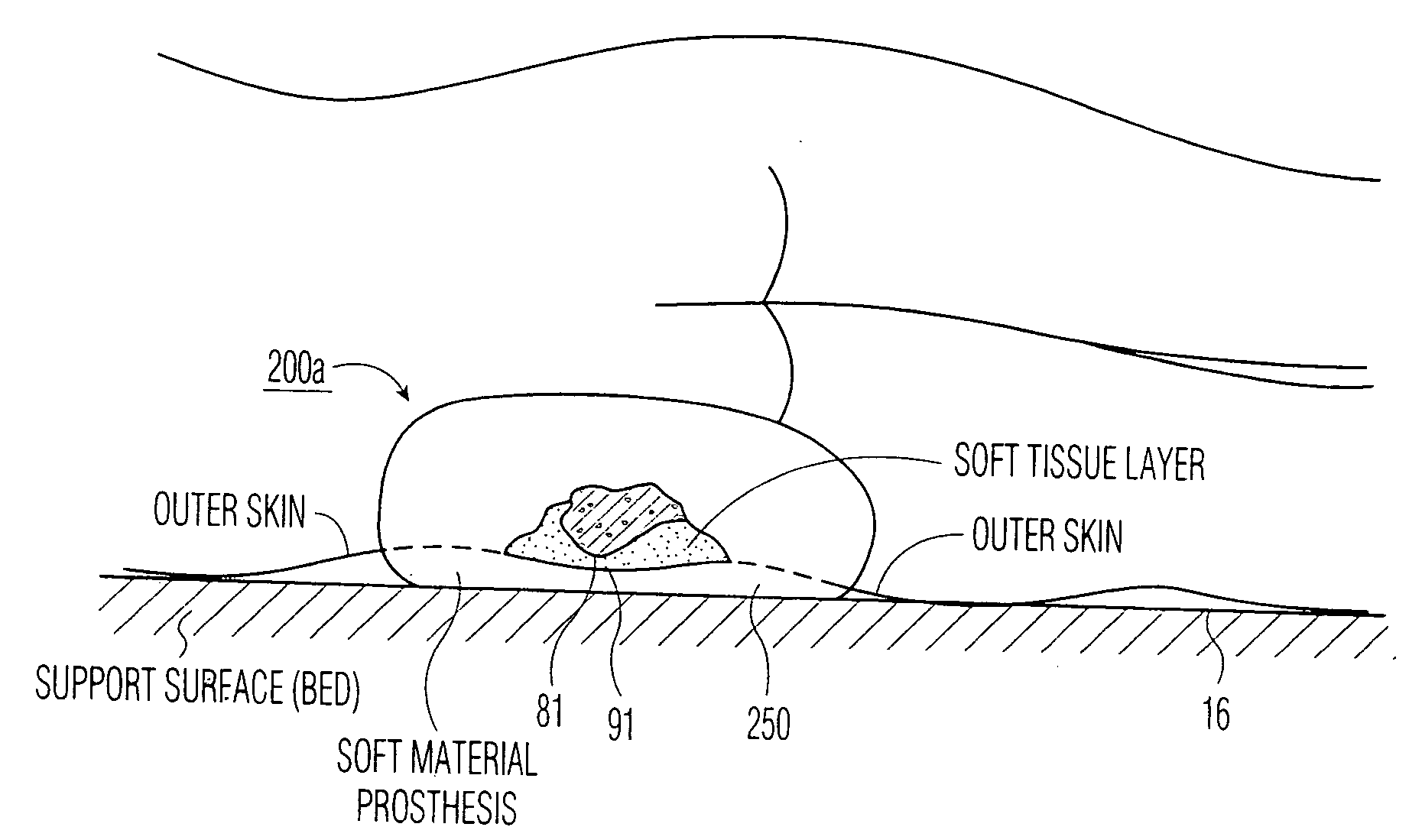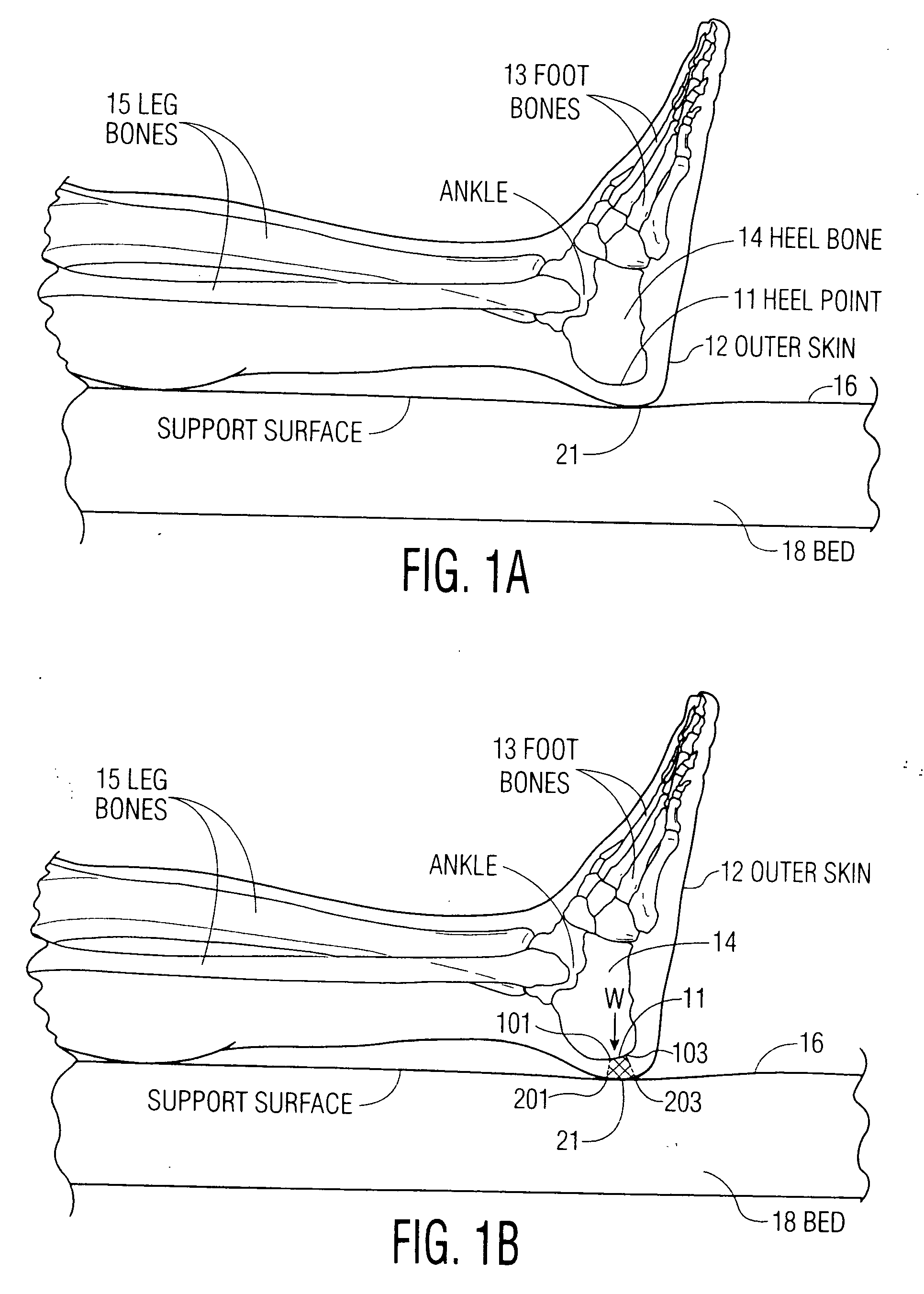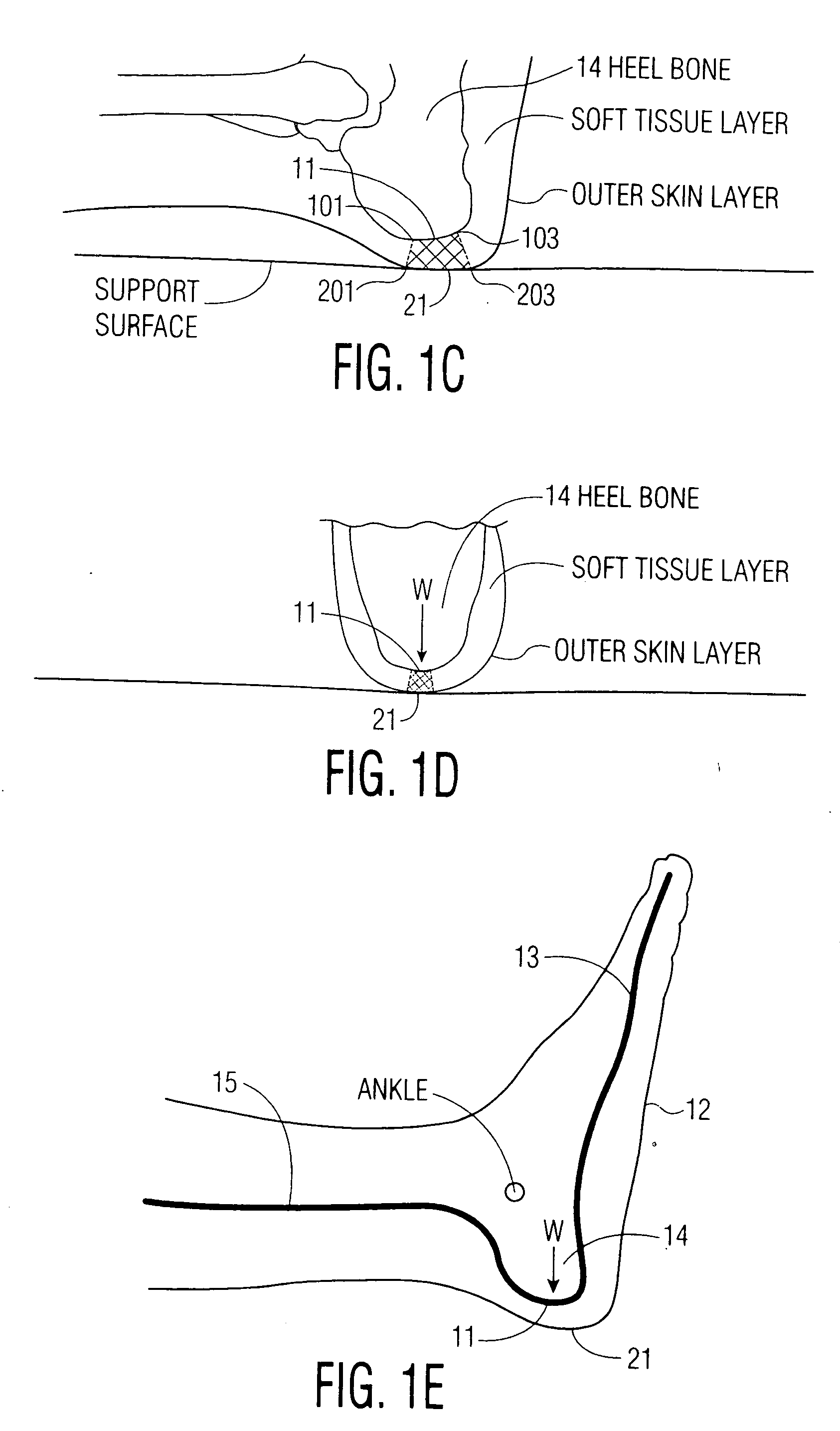Apparatus and methods for preventing and/or healing pressure ulcers
a technology of pressure ulcers and apparatus, applied in the field of apparatus and methods for preventing and/or healing pressure ulcers, to achieve the effect of little (or no) likelihood of the person developing a pressure ulcer
- Summary
- Abstract
- Description
- Claims
- Application Information
AI Technical Summary
Benefits of technology
Problems solved by technology
Method used
Image
Examples
Embodiment Construction
[0063] Applicants' invention will be explained by first referring to FIGS. 1A, 1B, 1C, 1D and 1E which illustrate that the weight (W) developed in the ankle and heel region (including the lower leg and foot) when the heel rests on a relatively firm support surface 16 is distributed over a relatively narrow cone like section extending outward from the bone region towards the support surface 16. For purpose of illustration, it is assumed that the weight due to the skin and soft tissue overlying foot bones 13 and leg bones 15 and the weight due to components from bones 13 and 15 is transferred to the heel bone 14. The heel bone is shown as a hemisphere-like structure, terminating in a heel point / region 11 in FIG. 1A. When the back of the heel rests on a relatively firm support surface, 16, of a bed 18, the weight onto and from point 11 is distributed along a relatively narrow cone-like portion of the soft tissue underlying point 11 (hatched region in FIGS. 1B, 1C...
PUM
 Login to View More
Login to View More Abstract
Description
Claims
Application Information
 Login to View More
Login to View More - R&D
- Intellectual Property
- Life Sciences
- Materials
- Tech Scout
- Unparalleled Data Quality
- Higher Quality Content
- 60% Fewer Hallucinations
Browse by: Latest US Patents, China's latest patents, Technical Efficacy Thesaurus, Application Domain, Technology Topic, Popular Technical Reports.
© 2025 PatSnap. All rights reserved.Legal|Privacy policy|Modern Slavery Act Transparency Statement|Sitemap|About US| Contact US: help@patsnap.com



